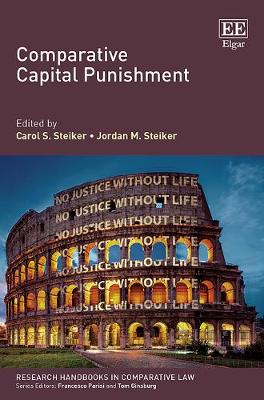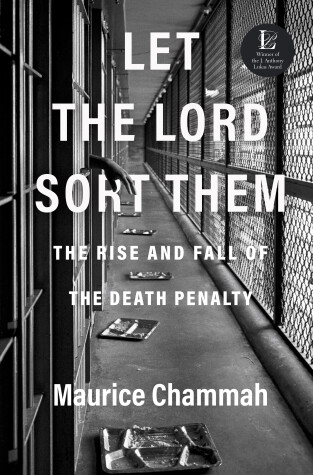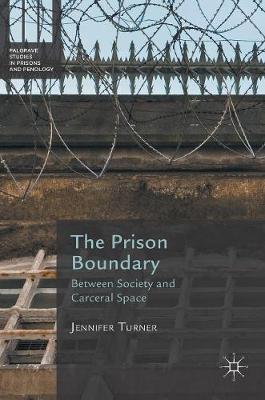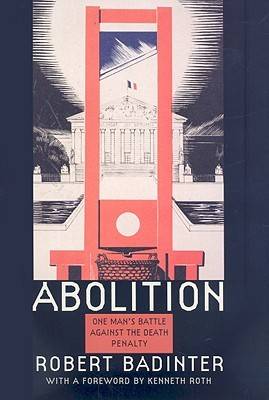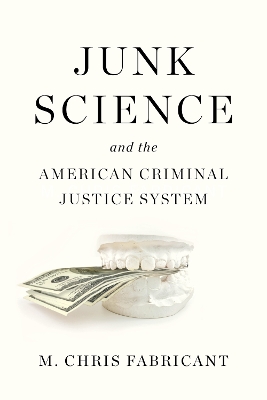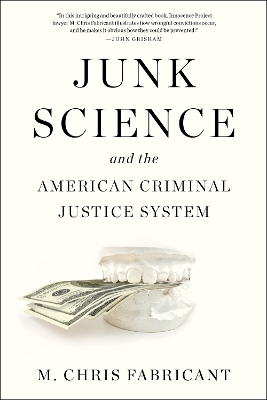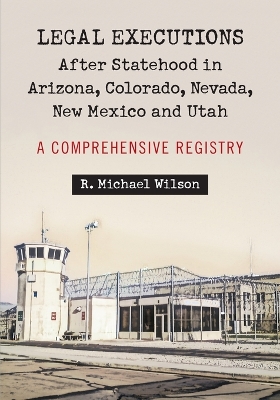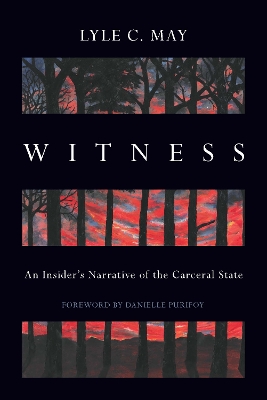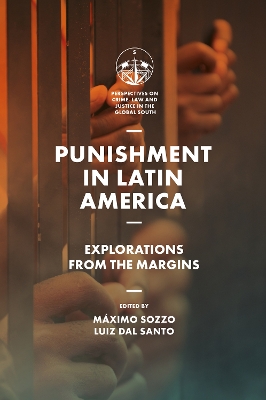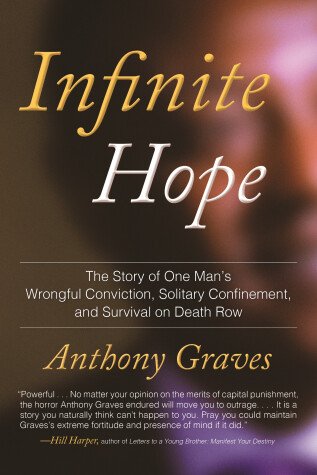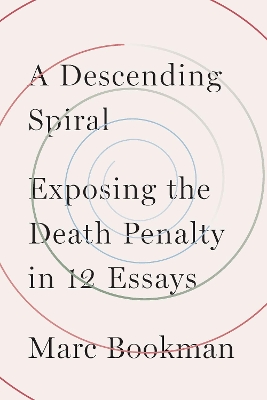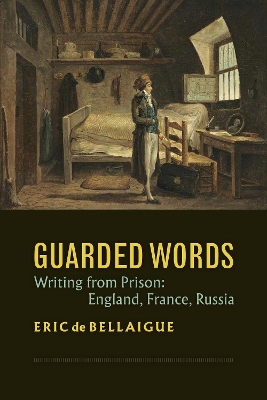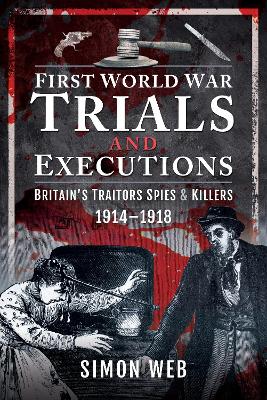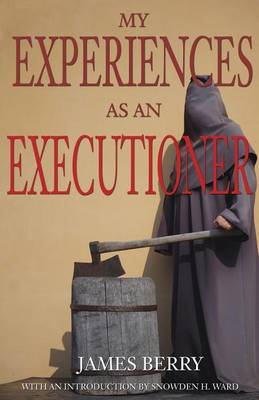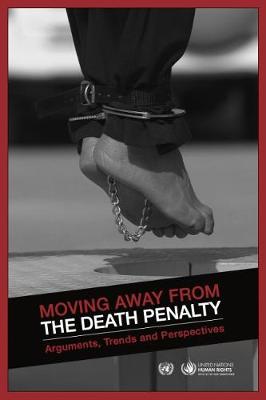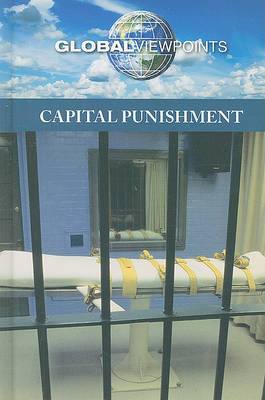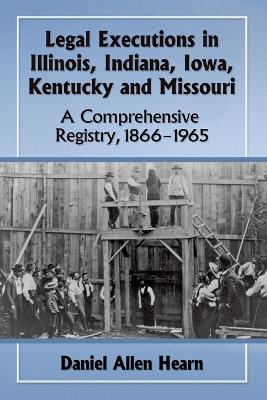Comparative Capital Punishment offers a set of in-depth, critical and comparative contributions addressing death practices around the world. Despite the dramatic decline of the death penalty in the last half of the twentieth century, capital punishment remains in force in a substantial number of countries around the globe. This research handbook explores both the forces behind the stunning recent rejection of the death penalty, as well as the changing shape of capital practices where it is ret...
NEW YORK TIMES EDITORS’ CHOICE • A deeply reported, searingly honest portrait of the death penalty in Texas—and what it tells us about crime and punishment in America “If you’re one of those people who despair that nothing changes, and dream that something can, this is a story of how it does.”—Anand Giridharadas, The New York Times Book Review WINNER OF THE J. ANTHONY LUKAS AWARD In 1972, the United States Supreme Court made a surprising ruling: the country’s death penalty system violated the...
The Prison Boundary (Palgrave Studies in Prisons and Penology)
by Jennifer Turner
This book explores the idea of the prison boundary, identifying where it is located, which processes and performances help construct and animate it, and who takes part in them. Although the relationship between prison and non-prison has garnered academic interest from various disciplines in the last decade, the cultural performance of the boundary has been largely ignored. This book adds to the field by exploring the complexity of the material and symbolic connections that exist between society...
Part legal drama, part political procedural, Abolition is above all a passionate argument against the death penalty and the rare story of politicians' willingness to fight for their principles, even against the popular will. Horrified by the guillotine execution of one of his clients in 1972, Robert Badinter dedicated his life to the abolition of the death penalty. Here, he recounts his efforts to publicly subvert the death penalty system by orchestrating the appeals for a series of notorious...
Legal Executions After Statehood in Arizona, Colorado, Nevada, New Mexico and Utah
by R. Michael Wilson
Since statehood was achieved in Arizona, Colorado, Nevada, New Mexico and Utah, 321 men and 2 women have been executed. The first of these post-statehood executions took place in Nevada on October 30, 1868, and the last took place in Utah on June 18, 2010. This text provides a case history for each execution, including details of the crimes committed, pursuits and captures, the particulars of the legal process, and the executions. There have been five methods of execution available in these stat...
Book 1 in a dark, twisty and totally unputdownable YA series – perfect for fans of THE HUNGER GAMES and THE MAZE RUNNER. 'A terrifying and sinister look into the future that will leave your jaw on the floor.' KASS MORGAN, New York Times bestselling author of THE 100 'Your next YA obsession.' ENTERTAINMENT WEEKLY 'Fans of The Hunger Games and The Maze Runner should look no further ... Thrilling and terrifying in equal measure.'...
Journalist and author Helen Lewis meets groundbreaking thinkers to test out their big ideasFrom politics to economics, from tech to the study of how we live, things are changing fast. Old certainties are crumbling, and we need new solutions to shake up the status quo and shape the future. In The Spark, Helen Lewis meets 11 radical thinkers who are bidding to change our world, and puts their ideas under the spotlight to find out what they have to offer compared to the failures of the past.Part 1...
A first-hand account of the death penalty's wholly destructive nature. In Witness, Lyle C. May offers a scathing critique of shifts in sentencing laws, prison policies that ensure recidivism, and classic "tough on crime" views that don't make society safer or prevent crime. These insightful and analytical essays explore capital punishment, life imprisonment, prison education, prison journalism, as well as what activism from inside looks like on the road toward abolishing the carceral state. No o...
Punishment in Latin America (Perspectives on Crime, Law and Justice in the Global South)
Challenging the Northern-centric approach that has dominated the literature on punishment-and-society, Punishment in Latin America draws on innovative theoretical perspectives to make sense of punishment, penal trends, institutions and practices in peripheral settings, taking Latin American countries as its case studies. Engaging with both historical trajectories and recent theoretical perspectives, contributors examine different aspects and dimensions of punishment and prison, identifying speci...
Written by a wrongfully convicted man who spent 16 years in solitary confinement and 12 years on death row—a powerful memoir about fighting for, and winning, exoneration In the summer of 1992, a grandmother, a teenage girl, and four children under the age of ten were beaten and stabbed to death in Somerville, Texas. The perpetrator set the house on fire to cover his tracks, deepening the heinousness of the crime and rocking the tiny community to its core. Authorities were eager to make an arre...
Powerful, wry essays offering modern takes on a primitive practice, from one of our most widely read death penalty abolitionists As Ruth Bader Ginsburg has noted, people who are well represented at trial rarely get the death penalty. But as Marc Bookman shows in a dozen brilliant essays, the problems with capital punishment run far deeper than just bad representation. Exploring prosecutorial misconduct, racist judges and jurors, drunken lawyering, and executing the innocent and the mentally ill,...
The Abolition of the Death Penalty and Its Alternative Sanction in East Africa: Kenya and Uganda
by Doreen Namyalo and Jacqueline Macalesher
In Guarded Words Eric de Bellaigue has attempted to answer questions inspired by his reading of Isaac D'Israeli's short essay 'Imprisonment of Learned', from that author's Curiosities of Literature. He asks: 'Can prison writing lay claim to a distinctive chapter in histories of literature? Is there a thread linking prisoners' output across the centuries? Can confinement provide the ideal environment for literary creativity? Is there common ground among the subjects treated? Alternatively, does...
Between the beginning of the First World War in the summer of 1914 and the armistice in 1918, 51 men were executed in Britain. The great majority, over 80%, were hanged for murder, but in addition to this, 11 men were shot by firing squad at the Tower of London. One traitor and one spy were also hanged. Traitors, Spies and Killers tells the story of the most interesting and noteworthy of these executions and the crimes which led up to them. Most books about true crime focus upon the crimes thems...
The mediating role of psychological capital on job characteristics and work engagement in retail,
by Prasad Puja
The third and final book in the acclaimed THE LOOP trilogy – perfect for fans of The Hunger Games and The Maze Runner ... 'A terrifying and sinister look into the future that will leave your jaw on the floor.' KASS MORGAN, New York Times bestselling author of THE 100 on book 1 'Your next YA obsession.' ENTERTAINMENT WEEKLY on book 1 'Fans of The Hunger Games and The Maze Runner should look no further ... Thrilling and terrifyi...
Moving away from the death penalty
Capital punishment is irrevocable. It prohibits the correction of mistakes by the justice system and leaves no room for human error, with the gravest of consequences. There is no evidence of a deterrent effect of the death penalty. Those sacrificed on the altar of retributive justice are almost always the most vulnerable. This book covers a wide range of topics, from the discriminatory application of the death penalty, wrongful convictions, proven lack of deterrence effect, to legality of the ca...
Legal Executions in Illinois, Indiana, Iowa, Kentucky and Missouri
by Daniel Allen Hearn
In the five state region of Illinois, Indiana, Iowa, Kentucky and Missouri, 1027 men and women are known to have been legally hanged, gassed or electrocuted for capital crimes during the century after the Civil War. Drawing on thousands of hours of research, this comprehensive record covers each execution in chronological order, filling numerous gaps in a largely forgotten story of the American experience. The author presents each case dispassionately with the main focus given to essential fa...
